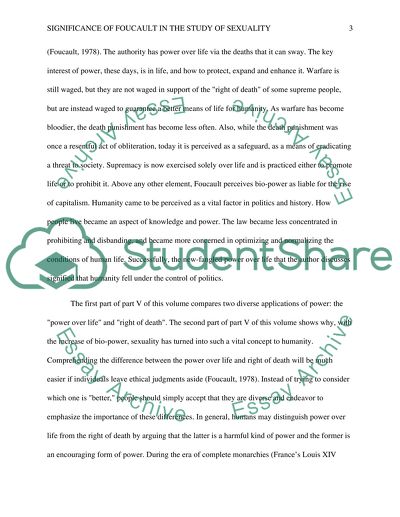Cite this document
(“Significance of Foucault in the Study of Sexuality Essay”, n.d.)
Significance of Foucault in the Study of Sexuality Essay. Retrieved from https://studentshare.org/gender-sexual-studies/1487284-significance-of-foucault-in-the-study-of-sexuality
Significance of Foucault in the Study of Sexuality Essay. Retrieved from https://studentshare.org/gender-sexual-studies/1487284-significance-of-foucault-in-the-study-of-sexuality
(Significance of Foucault in the Study of Sexuality Essay)
Significance of Foucault in the Study of Sexuality Essay. https://studentshare.org/gender-sexual-studies/1487284-significance-of-foucault-in-the-study-of-sexuality.
Significance of Foucault in the Study of Sexuality Essay. https://studentshare.org/gender-sexual-studies/1487284-significance-of-foucault-in-the-study-of-sexuality.
“Significance of Foucault in the Study of Sexuality Essay”, n.d. https://studentshare.org/gender-sexual-studies/1487284-significance-of-foucault-in-the-study-of-sexuality.


